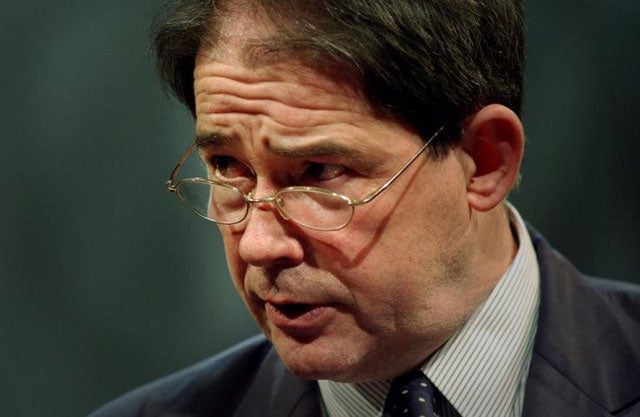Big Six firms use influence to dictate energy policy, claims leading environmentalist
Sir Jonathon Porritt said the next government must break providers' dominance

Your support helps us to tell the story
From reproductive rights to climate change to Big Tech, The Independent is on the ground when the story is developing. Whether it's investigating the financials of Elon Musk's pro-Trump PAC or producing our latest documentary, 'The A Word', which shines a light on the American women fighting for reproductive rights, we know how important it is to parse out the facts from the messaging.
At such a critical moment in US history, we need reporters on the ground. Your donation allows us to keep sending journalists to speak to both sides of the story.
The Independent is trusted by Americans across the entire political spectrum. And unlike many other quality news outlets, we choose not to lock Americans out of our reporting and analysis with paywalls. We believe quality journalism should be available to everyone, paid for by those who can afford it.
Your support makes all the difference.The influence of the Big Six energy companies in Whitehall is so strong that they are dictating policy and preventing the electricity system from getting the radical overhaul it desperately needs, a leading environmentalist, has claimed.
Sir Jonathon Porritt, a former chair of the Green Party, told The Independent that executives from the energy companies have permeated the civil service, locking the electricity system into a status quo that boosts their profits at the expense of UK households.
He said the major challenge for the next government would be to break the dominance of the Big Six energy providers – British Gas, SSE, Scottish Power, RWE, E.ON and EDF – and totally change the way the electricity grid operates.
“I think we’re still very stuck here in the UK because of the dominant position of the Big Six. They are understandably very closely involved in maintaining something resembling the status quo,” said Sir Jonathon, who is trying to overhaul the energy system through his sustainable development charity Forum for the Future.
“They do this through incredibly close relationships, not just with the outgoing ministers in DECC (Department for Energy and Climate Change) but with a whole generation of civil servants in DECC who can hardly move without consulting with the Big Six first,” he said, adding that much of the influence is exerted through secondments.

Executives from British Gas owner Centrica, EDF Energy, local network operator UK Power Networks and Shell have been seconded to the Department for Energy and Climate Change since August 2013, as well as staff from the consultancies KPMG and Ernst & Young, according to a Freedom of Information request.
Furthermore, executives from Centrica, Drax, RWE, Scottish Power and SSE were part of a group that advised DECC on recent electricity market reforms.
“The dirty fingerprints of the Big Six can be detected all over British energy policy. Big power firms have lobbied relentlessly for subsidies for polluting plant, an Energy Bill that maintains their stranglehold on our electricity supplies, and weaker rules on insulating homes. And funnily enough they’ve got what they wanted,” said Friends of the Earth campaigner Guy Shrubsole.
Energy UK, the industry association, declined to comment, pointing instead to the major ongoing investigation into the Big Six by the Competition and Markets Commission centring on price transparency. It also referred The Independent to Ofgem and DECC.
In response the DECC pointed out that the number of independent suppliers has more than trebled since 2010 and there are now 23 independent suppliers with over 10% share of the market.
It added that within DECC there is a senior civil servant responsible for managing relations with independent suppliers, to give them the opportunity to discuss concerns and shape policy developments.
A spokesman for Ofgem said: “We believe the energy market is not working effectively for consumers, and that is why we took the radical step of referring it to the Competition and Markets Authority for investigation for the first time last year.”
Under Influence? Business and Whitehall
There are many examples of executives who have held senior positions in the energy industry and government.
Lord Browne, a former BP chief executive and chairman of the fracking firm Cuadrilla, was the government’s lead non-executive director until the end of January. Sam Laidlaw was chief executive of Centrica and lead non-executive director of the Department for Transport, stepping down from both roles at the start of the year.
George Osborne’s father-in-law, Lord Howell, is also president of the British Institute of Energy Economics, a lobbying group whose backers include BP and BG Group.
Join our commenting forum
Join thought-provoking conversations, follow other Independent readers and see their replies
Comments